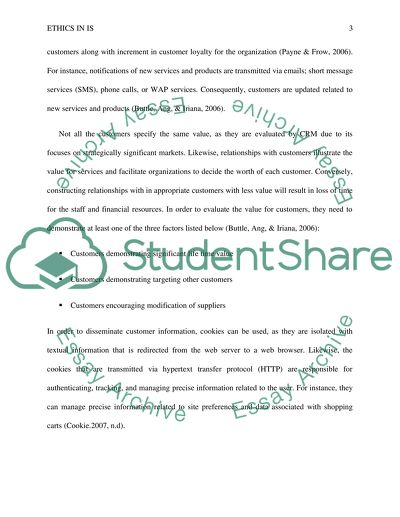Cite this document
(“Ethics in infofmation systems Term Paper Example | Topics and Well Written Essays - 1500 words”, n.d.)
Ethics in infofmation systems Term Paper Example | Topics and Well Written Essays - 1500 words. Retrieved from https://studentshare.org/information-technology/1497712-ethics-in-infofmation-systems
Ethics in infofmation systems Term Paper Example | Topics and Well Written Essays - 1500 words. Retrieved from https://studentshare.org/information-technology/1497712-ethics-in-infofmation-systems
(Ethics in Infofmation Systems Term Paper Example | Topics and Well Written Essays - 1500 Words)
Ethics in Infofmation Systems Term Paper Example | Topics and Well Written Essays - 1500 Words. https://studentshare.org/information-technology/1497712-ethics-in-infofmation-systems.
Ethics in Infofmation Systems Term Paper Example | Topics and Well Written Essays - 1500 Words. https://studentshare.org/information-technology/1497712-ethics-in-infofmation-systems.
“Ethics in Infofmation Systems Term Paper Example | Topics and Well Written Essays - 1500 Words”, n.d. https://studentshare.org/information-technology/1497712-ethics-in-infofmation-systems.


